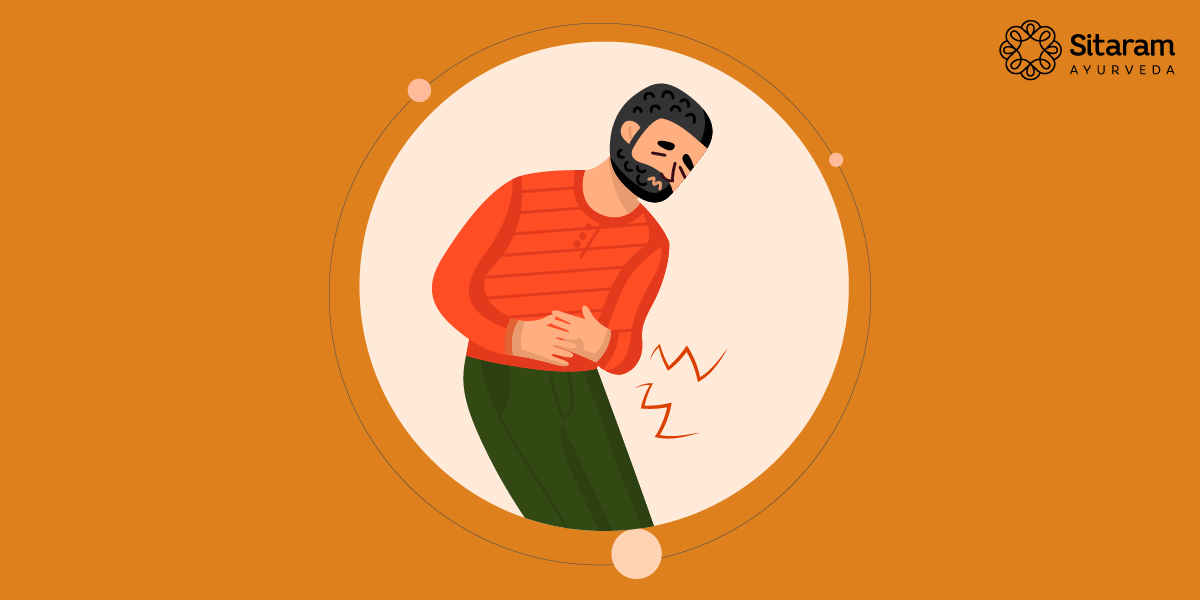From Chronic Constipation to Regularity: An Ayurvedic Approach & Medicine

Constipation treatment in Ayurveda
According to Ayurveda, constipation is caused due to Vata imbalance which blocks the channels. It is termed ‘vibhanda’ in Ayurveda. ‘Apana vata’ is responsible for downward movement of vata and expulsion of stools. When its function gets afflicted, this causes blockage in the large intestine and results in constipation. If not corrected, it can lead to complications like hemorrhoids, fissure-in-ano, abdominal distention, etc.
Ayurveda can effectively manage constipation through medication and treatments. Nidana parivarjana (i.e. avoidance of the causative factor) is the first step to fighting constipation. Avoid irregular food habits, incompatible foods, inadequate fluid consumption, etc. One of the most effective formulations that treat constipation includes Sitaram’s S T tablets.
S T tablets are used to treat constipation, dysfunctional intestine, medication-induced constipation, low blood and lymph quality, indigestion, flatulence, and abdominal bloating. The presence of Triphala in the formulation balances the tridoshas in the gut and immediately complements the fiber content of the diet. Senna and Trivrut are bowel stimulants that promote intestinal motility. Triphala and Yashti work together to balance the Pitta dosha in the Koshta. This characteristic promotes digestion and metabolism.
It also has unique benefits on cleaning the blood and benefits skin health. The usage of S T Tablet on a regular basis keeps the faecal matter wet and pliable, allowing for easy voiding. S T Tablet can help with chronic constipation, medication-induced constipation, and irregular bowel movements.
Key ingredients and their actions
Haritaki (Terminalia chebula)
Also known as the Indian walnut tree. and is extremely beneficial in the treatment of diarrhea, dysentery, eyesight issues, obesity, gingivitis, gout, and asthma. Haritaki is high in Vitamin C and has antioxidant and anti-inflammatory properties.
Vibhitaki (Terminalia bellerica)
Vibhitaki is utilized in the preparation of several rasayanas and is also used to treat obesity, manage blood sugar levels, improve digestion, ease constipation, and so on.
Amalaki (Embilica officinalis)
High in Vitamin C Amalaki is well-known for its anti-aging and immunity-boosting properties. Commonly used to treat high cholesterol, heartburn, and diabetic problems.
Madhuka (Glycyrrhiza glabra)
Yashti roots are mostly utilized in Ayurvedic formulations and as a single medication. Yashtimadhu oil is used externally for various skin diseases, while decoctions are used internally for respiratory and digestive issues.
Trivrit (Operculina turpethum)
Turpeth is a common name for this plant. It is beneficial for quick purgation. Trivrit is the best because of its features such as strength, penetrating, and pungent nature. It is thus quite beneficial in terms of weight loss. It can help with worm infestation, constipation, and healing infected wounds. For purgation, trivrit lehya can be taken in the early morning.
Sunnamukhi (Cassia angustifolia)
Senna is the common name for this plant. Senna glycosides promote intestinal motility and modify colonic absorption and secretion, resulting in fluid buildup and ejection. Senna plant leaves are also used in some drinks to assist treat constipation or encourage weight loss.
Dosage
For best results, consume 2 S T tabs with warm water at bedtime or take advice from your Ayurvedic physician.
More about constipation
Chronic constipation is a common problem that is determined by difficult and/or rare passage of stool or both. As per the reports, globally 16% of the population is affected by constipation. Adults above 60yrs are reported to get affected more. The disease evolves due to multifactorial problems like poor diet habits, colonic motility, poor socio-economic status, genetic factors and certain other biological factors.
What is Constipation?
Constipation is one of the gastrointestinal tract disorders which is caused due to difficulty in passing motions. The bowel movements become difficult; either it causes less frequent motions or complete obstruction for passing motions.
Many times, constipation occurs as a symptom of some underlying disease. It should be treated and cleared. Acute constipation is extremely dangerous which may lead to obstruction in the intestine and might require surgery to solve the issue.
What are the causes of Constipation?
- Lack of a healthy diet often leads to constipation. A diet lacking dietary fibers, fluids, etc. can lead to hard stools.
- Stress – Stress is a major cause of constipation. An irregular routine like an unhealthy diet, lifestyle changes, lack of sound sleep, etc. may also lead to constipation.
- Poor mobility of colon muscles – The colon muscles promote the evacuation of waste material from the body through the rectum. Due to poor mobility, if the stool remains too long in the colon, it becomes hard and difficult to pass.
- Dehydration
- Lack of activity or exercise
- Less bowel movement
- Continuous travel or change in routine
- Intake of medication like antacids and analgesics
- Pregnancy
- Few medical conditions like Stroke, Parkinsonism, Irritable bowel syndrome, Diabetes, Underactive thyroid, excess intake of laxatives, Colon cancer, etc. results in constipation.
What are the symptoms of constipation?
- Less frequency of motions, less than 3 bowel movements in a week
- Difficulty in passing motion
- Evacuating hard or dry stools
- Pain during bowel movements
- Rectal blockage
- Bloating in the abdomen
The risk category
- Elderly adults who are physically inactive or under the diseased condition
- Medical conditions such as major injuries who are confined to bed
- More cases are reported in woman
- Rapid hormonal changes in woman
- Pregnant ladies
Disclaimer: This blog is solely intended for educational/informational/awareness purposes and is not a substitute for any professional medical advice, diagnosis, or treatment. Please consult your doctor/healthcare professional or book an online consultation before acting on the information provided on the blog. Reliance on any or all information provided in the blog is solely at your own risk and responsibility. Sitaram Ayurveda Private Limited shall not be held liable, in any circumstance whatsoever.


 Sign In
Sign In Cart
Cart